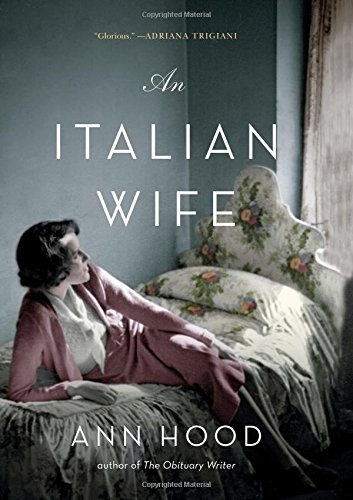An Italian Wife
Ann Hood’s latest novel is a series of vignettes focusing on more than the title character. The book visits the experiences of three generations of reluctant immigrant Josephine Rimaldi (born, we are told, in 1874), starting at the turn of the 19th century and ending at her death, close to a century later. Quite a few members of the extended family merit stories of their own. This makes for lot of history to pack into fewer than 300 pages, and many characters for the reader to keep track of. Josephine’s character development suffers some as a result, sacrificed to assays into the other characters’ lives.
That’s not to say that the writing also suffers, because it can be quite wonderful. One of the cleverest scenes shows granddaughter Francesca writing a letter from their home in Rhode Island to Mussolini during World War II—tricking her drooling grandmother by turning the old woman’s praise of the dictator into a hate letter. It’s clear the girl is embarrassed by and perhaps even despises the now-elderly Josephine, who still hasn’t learned English after thirty years in America. In another moving scene, great-grandson Roger receives word of his brother Davy’s death in Vietnam, even as he half-wishes this brother he has always competed with might actually be killed in battle. When the increasingly frail Josephine appears, and she and young Roger are whisked off to yet another relative’s home out of state, it’s with a feeling that neither is truly valued by the rest of the family.
If the reader is looking for plot, it will be hard to find, but these glimpses into the life of a reluctant immigrant woman, and the family she adds to America’s population, are poignant, realistic, and remind us of our own families – and the ways in which we cling together or fall apart.










